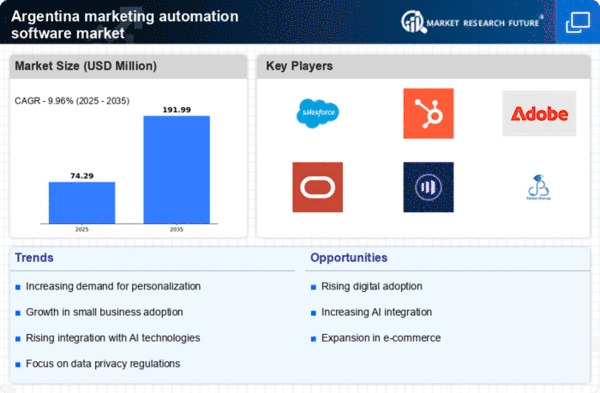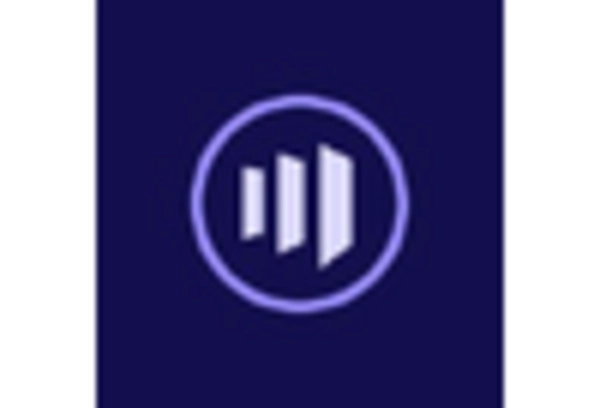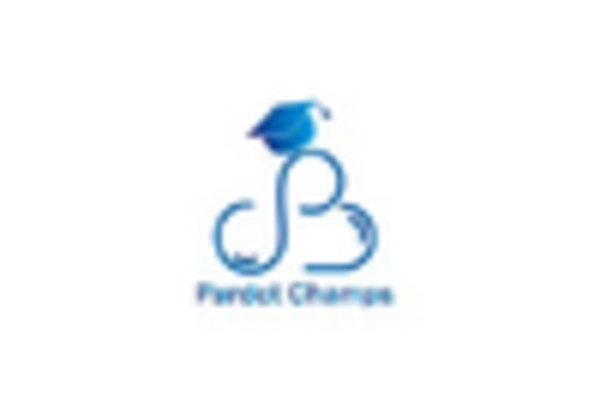Growth of E-commerce Platforms
The expansion of e-commerce platforms in Argentina significantly influences the marketing automation-software market. With online shopping becoming increasingly prevalent, businesses are compelled to adopt automation solutions to manage customer interactions effectively. Recent statistics indicate that e-commerce sales in Argentina have grown by over 40% in the past year, prompting companies to seek efficient ways to engage with their customers. Marketing automation tools enable businesses to streamline their marketing efforts, automate email campaigns, and analyze customer data, which is essential for optimizing online sales strategies. As the e-commerce sector continues to flourish, the demand for marketing automation software is expected to rise, providing companies with the necessary tools to enhance their online presence and drive sales.
Adoption of Cloud-Based Solutions
The marketing automation-software market in Argentina is witnessing a significant shift towards cloud-based solutions. Businesses are increasingly adopting cloud technologies due to their scalability, cost-effectiveness, and ease of access. Recent surveys indicate that over 60% of companies in Argentina prefer cloud-based marketing automation tools, as they allow for seamless collaboration and real-time data access. This trend is particularly beneficial for small and medium-sized enterprises (SMEs) that may lack the resources for extensive IT infrastructure. As cloud solutions continue to gain traction, the marketing automation-software market is expected to expand, providing businesses with flexible and efficient tools to enhance their marketing efforts and improve overall operational efficiency.
Rising Demand for Personalization
The marketing automation-software market in Argentina experiences a notable surge in demand for personalized marketing strategies. Businesses increasingly recognize that tailored content enhances customer engagement and drives conversion rates. According to recent data, companies utilizing marketing automation tools report a 30% increase in customer retention when implementing personalized campaigns. This trend is particularly pronounced in sectors such as retail and e-commerce, where understanding consumer behavior is crucial. As organizations strive to differentiate themselves in a competitive landscape, the ability to deliver customized experiences becomes paramount. Consequently, the marketing automation-software market is likely to expand as firms invest in technologies that facilitate personalized interactions, thereby fostering customer loyalty and enhancing overall marketing effectiveness.
Emergence of Mobile Marketing Solutions
The rise of mobile technology significantly impacts the marketing automation-software market in Argentina. With an increasing number of consumers accessing content via mobile devices, businesses are compelled to adapt their marketing strategies accordingly. Recent data shows that mobile commerce accounts for approximately 30% of total e-commerce sales in the country. This shift necessitates the integration of mobile marketing solutions within automation software to effectively reach and engage customers on their preferred platforms. As organizations recognize the importance of mobile optimization, the marketing automation-software market is likely to see a surge in demand for tools that facilitate mobile marketing campaigns, thereby enhancing customer engagement and driving sales.
Increased Focus on Analytics and Reporting
In the marketing automation-software market, there is a growing emphasis on analytics and reporting capabilities. Businesses in Argentina are increasingly leveraging data-driven insights to refine their marketing strategies. The ability to track campaign performance and customer behavior is becoming essential for optimizing marketing efforts. Recent findings suggest that companies utilizing advanced analytics tools experience a 25% improvement in campaign effectiveness. This trend indicates a shift towards data-centric decision-making, where organizations prioritize tools that offer comprehensive reporting features. As the marketing landscape evolves, the demand for sophisticated analytics within marketing automation software is likely to grow, enabling businesses to make informed decisions and enhance their overall marketing performance.
















